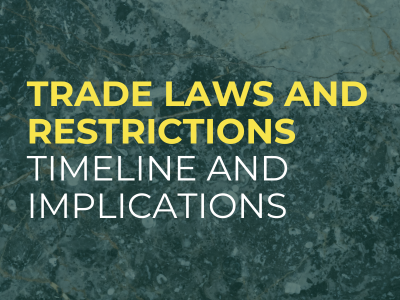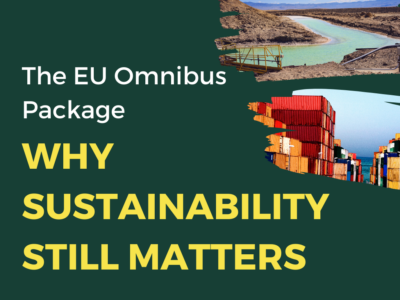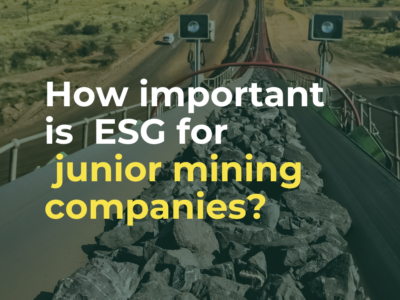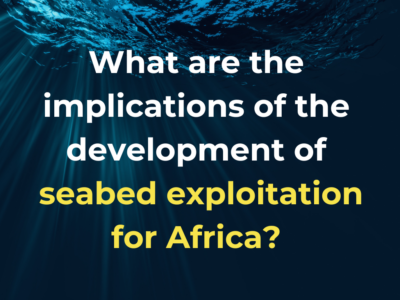
What are the implications of the development of seabed exploitation for Africa?
Panel session at Mining Indaba 2025 – chaired by TDi’s CEO, Assheton Stewart Carter
To build the technology and infrastructure necessary to meet the Paris Agreement, we need minerals and metals. The International Energy Agency forecasts significant shortfalls to meet rising demand in energy transition minerals, in some cases these are very significant. The impetus to discover viable resources and develop reserves is strengthening. This includes areas and ecosystems that are controversial because of their political, social and/or ecological sensitivities. One of these is the deep seabed, which holds trillions of tons of minerals used in clean energy technology.
TDi’s CEO, Assheton Stewart Carter led a session to discuss the implications of the development of seabed exploitation for Africa at the 2025 Mining Indaba in Cape Town between 3-6 February 2025. Assheton first wrote on this topic in a paper developed in partnership with the World Economic Forum in 2022 on Decision-Making on Deep-Sea Mineral Stewardship: A Supply Chain Perspective, examining the gaps in knowledge, stakeholder participation and consensus impeding sound decision-making on deep-sea mineral stewardship.
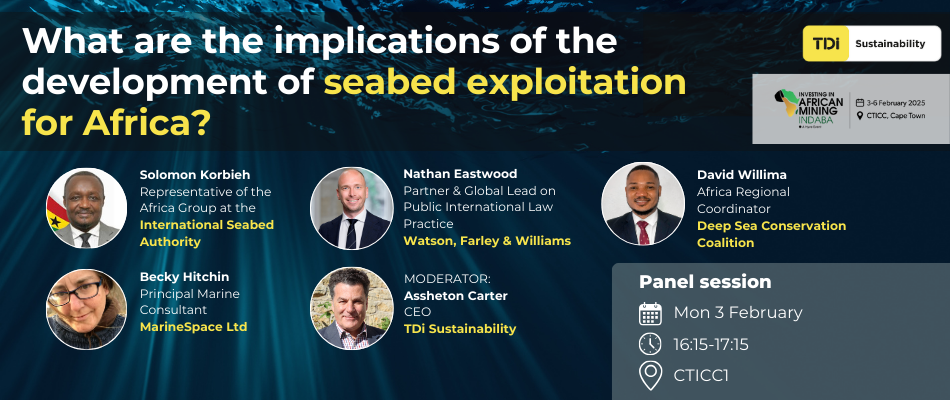
The case against recovering deep seabed minerals is that the removal of sea-floor material, creation and disposal of sediment generated from machines used to extract minerals, and noise pollution in an area of the planet much of which is yet unexplored, could lead to species loss and disruption to precious ecosystems, with knock-on effects for biodiversity, coastal communities, and wider ecological impacts we can’t yet predict. These arguments are valid and should be listened to very carefully.
The arguments in favour of pursuing the development of this apparently vast resource are also powered by environmental drivers. We need these metals to build the clean, low carbon technology that can help us address the biggest threat of all: climate change. Can we afford to set aside the possibility of sourcing minerals from the deep sea? Can the impacts be managed to an acceptable level? And can the economic revenue generated from developing these resources be distributed equitably?
A complex decision-making matrix
We face tough choices and the prospect of uncomfortable trade-offs. There is more common ground on some fundamental principles than it may at first seem, however. All sides of the debate acknowledge the need for more knowledge on all aspects of the potential effects of deep seabed mining, both positive and negative. All agree that such discussions need to be science-based and open to the possibility that extraction might not go ahead, but also that it might. And most agree that the governance of this resource must be transparent, participative, and pursue economic justice.
The panel session at the Mining Indaba in Cape Town, brought together representation from different stakeholders in deep seabed minerals to discuss which African nations are exploring their jurisdictional seabeds and which are sponsoring expeditions in international waters. The panellists discussed:
- What does deep sea mining have to offer African nations and enterprises?
- What is the status on the science on the effects of mineral development?
- Have the regulations and standards on ensuring management of adverse impacts and the mechanisms for distributing the economic benefits kept up with the pace of exploration?
- Why should Africa support or resist deep sea mining?
Panelists:
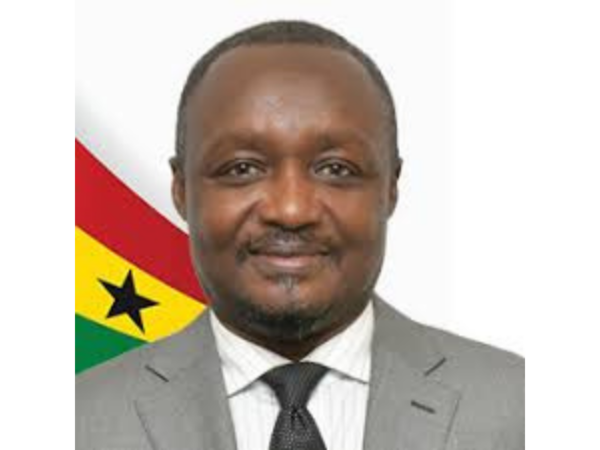
Solomon Korbieh
Solomon is a Ghanaian diplomat and has served his country in many international posts include Senegal, Cote d’Ivoire and the United States of America. He is the Minister Plenipotentiary, Permanent Mission of Ghana to the United Nations and is the representative of the Africa Group at the International Seabed Authority (ISA). In his work at the ISA, Korbieh champions the interests of African countries in the development of seabed minerals and the incorporation of the principles of sustainable development and responsible production.

Nathan Eastwood
Nathan is a Partner in Watson Farley & Williams’ Dispute Resolution Group and is the Global Lead of the firm’s Public International Law Practice. He is a world leader on regulatory frameworks in emerging resources and energy sectors, including seabed mining. He runs one of the few dedicated seabed mining practices and is a recognised expert on the United Nations Law of the Sea (UNCLOS) and the International Seabed Authority’s work on seabed mining in international waters. Nathan regularly advises contractors, applicant contractors, investors, technical partners and Sponsoring States on all aspects of seabed mining, drawing on his deep understanding of UNCLOS and experience with the International Seabed Authority.

Becky Hitchin
Becky has 23 years’ experience as a marine ecologist, environmental assessment scientist and a national and international policymaker. She has been a member of both the UK and Commonwealth delegations to the International Seabed Authority, including working closely with both the African Group and Pacific Island states in the development of the Exploitation Regulations. She now sits on the Legal and Technical Commission of the International Seabed Authority, working particularly on Regional Environmental Management Plans and development of Noise and Light Thresholds. She currently works as a marine consultant developing EIA assessments for offshore marine industries.
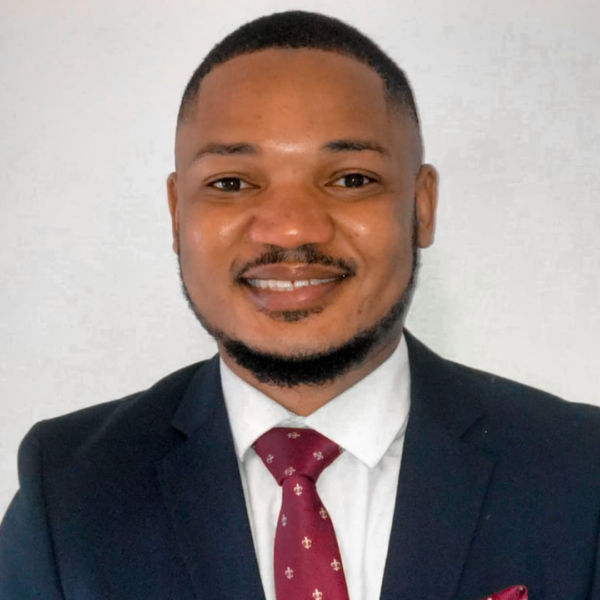
David Willima
David Willima works as a Maritime Security Research Officer at the Institute for Security Studies (ISS) in Pretoria, and is also the Africa Regional Coordinator at the Deep Sea Conservation Coalition. His focus areas are maritime security, the blue economy and oceangovernance, climate risk, and human security.
David is also passionate about driving youth involvement in ocean governance and has represented the continent in various international ocean governance platforms.

